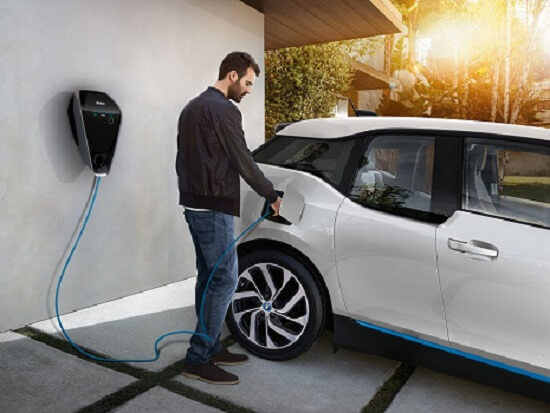Electric cars are becoming increasingly popular as the world looks for more sustainable ways to power transportation.
By replacing traditional gasoline-powered engines with electric motors, these cars offer a host of environmental and financial benefits.
Electric cars produce less emissions than their gasoline equivalents and do not require fossil fuels.
They are also often cheaper to maintain in the long run: electricity is much less expensive than gasoline or diesel when it comes to powering a car for hundreds of miles.
Additionally, government incentives may be available in some countries for those who choose to switch from traditional internal combustion engine models to an electric vehicle.
Modern electric cars have impressive ranges and many can travel between 100 and 300 miles on a single charge with the latest technology batteries available today that recharge quickly using quick charging stations or even home wall boxes.
The latest models also deliver impressive performance specs due to improved battery capabilities, while being kinder to the environment than their petrol counterparts.
Despite the advantages offered by electric vehicles, there are still some disadvantages worth considering before making a purchase decision, such as limited availability of public charging infrastructure for long-distance travel, higher initial costs compared to gasoline-powered cars and potential issues related to battery degradation over time. time.
Benefits of electric cars
Electric cars have numerous benefits that can help make them a more attractive option for many drivers.
The most obvious benefit is the cost savings associated with using electricity instead of gasoline or diesel fuel.
Electricity is often cheaper than gasoline, and electric cars generally require less maintenance, resulting in significant long-term savings.
In addition, electric cars are typically much more efficient than their internal combustion engine counterparts and can travel further on a charge than gasoline-powered vehicles.
That means fewer trips to the gas station, as well as a smaller carbon footprint due to reduced emissions.
Electric cars also require far fewer moving parts, making them simpler to repair and maintain compared to traditional vehicles, reducing repair costs over time.
Finally, electric cars are incredibly quiet while driving, producing significantly less noise pollution than regular vehicles, making them ideal for cities where traffic noise can be distracting.
Electric car charging solutions
Charging electric cars is an important factor that many people consider before switching from traditional fuel-powered cars.
There are several charging solutions available depending on the type of vehicle and where it will be parked.
For example, Level 1 charging uses a basic 120V outlet and can take up to 10 hours for a full charge, but this type of charging is ideal for overnight use at home.
Level 2 chargers require a 240V outlet and can charge most electric vehicles in 4-6 hours or less, making them an ideal choice for public areas like malls or workplaces as they offer faster recharge times .
DC fast chargers are also becoming more popular and provide the fastest charge rate with compatible EVs, capable of reaching full capacity in just 30 minutes.
No matter which option you choose, there are many solutions available to make owning an electric car more convenient.
Maintenance costs
Maintenance costs are a key factor to consider when comparing electric cars and traditional gasoline-powered vehicles.
Electric cars tend to require less maintenance than their gas counterparts due to the fewer moving parts they contain.
For example, electric cars don't need an oil change as they don't have an oil filter or fuel engine, which also cuts down on other costs like fuel filters or changing spark plugs.
In addition, electric cars feature regenerative braking systems that act as an additional brake pad against brake system wear, meaning that less frequent replacement of the brakes is also required.
Despite these benefits, electric car owners still need to be mindful of the typical maintenance that comes with owning a vehicle.
This includes tire rotations and alignments, cabin filter replacements, and ensuring fluid levels remain optimal for optimal performance.
Furthermore, Li-Ion batteries in electric cars degrade over time due to excessive charge cycles – so it is important for owners to be careful when the battery needs replacing as this can incur expensive costs compared to traditional engines.
Conclusion: Going Electric
Going electric is a fantastic way to have the best of both worlds.
By combining the power and efficiency of an electric motor with the convenience of gasoline, drivers can enjoy all the benefits of a vehicle without sacrificing performance or cost.
Furthermore, electric cars are becoming more and more popular due to their environmental benefits.
Not only do they produce zero emissions when driving, but they also require fewer resources to manufacture than traditional gas-powered vehicles.
Finally, electric cars are also incredibly safe, thanks to their low center of gravity and advanced safety features like ABS brakes and airbags.
In short, going electric is a great way for drivers to reduce their impact on the environment while still enjoying all the convenience of car ownership.

